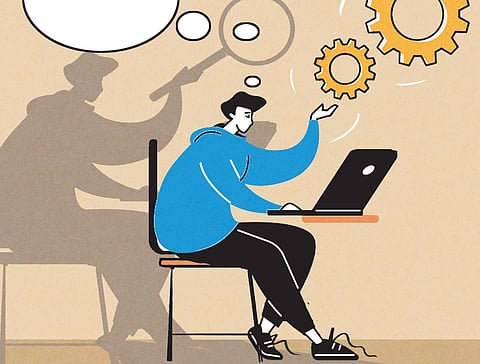

A week before graduating from my MBA, I met with an accident. I had a few job offers in hand and was interviewing for another role. I was in the final round, optimistic about my chances, but life had other plans. I was mostly bedridden for the next few months, and couldn’t join the companies I had offers from. I found myself without options for a while.
Ten years on, I can say with some conviction that the pause I resented at the time turned out to be a blessing. Instead of rushing to take up the job that my peers were most interested in, I leaned into what I really wanted to do. I started scheduling calls with my mentors who made me realise that no one will remember what I didn’t do a few months after graduation. They will, however, remember the difference I make in the coming decades.
After my accident, I sharpened my focus on jobs that were at the intersection of technology, policy and social impact, and stopped applying for roles that didn’t seem right. Four months of guided search, connecting with peers, and reaching out to professors and advisers led me to a team at Microsoft that was aligned with my interest.
Being on that team turned out to be transformational. I got to work on challenging projects, build skills and carve out a network that helps me to this day. None of this would have happened had I rushed into
a job that seemed shiny from the outside, but misaligned with what I wanted to do.
When it comes to careers, we often think about urgent matters and ignore important considerations like fit, capability, intent and long-term contribution to the problems we are most interested in solving.
If you feel that your career is slowing down, you are not getting promoted every few years or have been laid off, it is time to shift your focus.
Your career break could be a blessing. Here are some ways you can navigate the turmoil. Take the long-term view: We hustle through our careers thinking we have a decade or two of work to do, but the truth is that people today would be working for 80 years on average. That’s a long time. More than running fast, conserve your energy and play the long game.
Deep-dive into your frustration with work: Analyse the aspects of your work life that frustrate you the most. If you are out of a job, look back and think through what you liked about your work and what you didn’t. Typically, jobs aren’t all good or all bad.
Don’t expect big changes in the short-term: We often overestimate what we can do in one year, but underestimate what we can do in a decade. The challenge is that we take most actions keeping the next year or next quarter in mind.
It prevents us from making changes that will help carve out a tangibly better work life in the long run.
If you feel your career has paused or slowed down, it is better not to expect dramatic results next week. Unrealistic expectations in condensed timelines can be detrimental to your confidence and expectations from your future self.
Reshape your network:
I found my job at Microsoft with the help of a mentor whom
I hadn’t spoken to in a while.
I would occasionally send him an email sharing what I had been up to, but nothing more. When I reconnected with him after my accident, he pointed me to an opening that suited my interests. He had a clear sense of what I was good at and where I wanted to take my career. His nudge turned out to be the differentiating factor. Weak ties matter. Take time to reconnect with people.
Remember how you do anything is how you do everything: When things aren’t going our way, it is especially important to pay attention to our habits, routines and rituals. They tend to fall apart, leaving us de-energised to take steps that will help us bounce back. During the first month after the accident,
I gained a lot of weight. All I was doing was watching television and sending out CVs halfheartedly.
I kept asking myself why it happened to me. Instead, I should have asked what I could do about it. I did finally accept the situation for what it was and started taking small steps towards finding joy. I committed to myself that whatever I do, I would do it to the best of my ability or I wouldn’t do it at all. That proved to be helpful. I became intentional about my time and energy. Doing simple things well helped build momentum towards other things.
The current slowdown in your career could turn out to be a blessing with the right mindset and right approach. Remember, you may not be able to make a big difference tomorrow, but if you think long term, you will make your future self proud.
Utkarsh Amitabh
CEO, Network Capital; Chevening Fellow, University of Oxford
Twitter: @utkarsh_amitabh